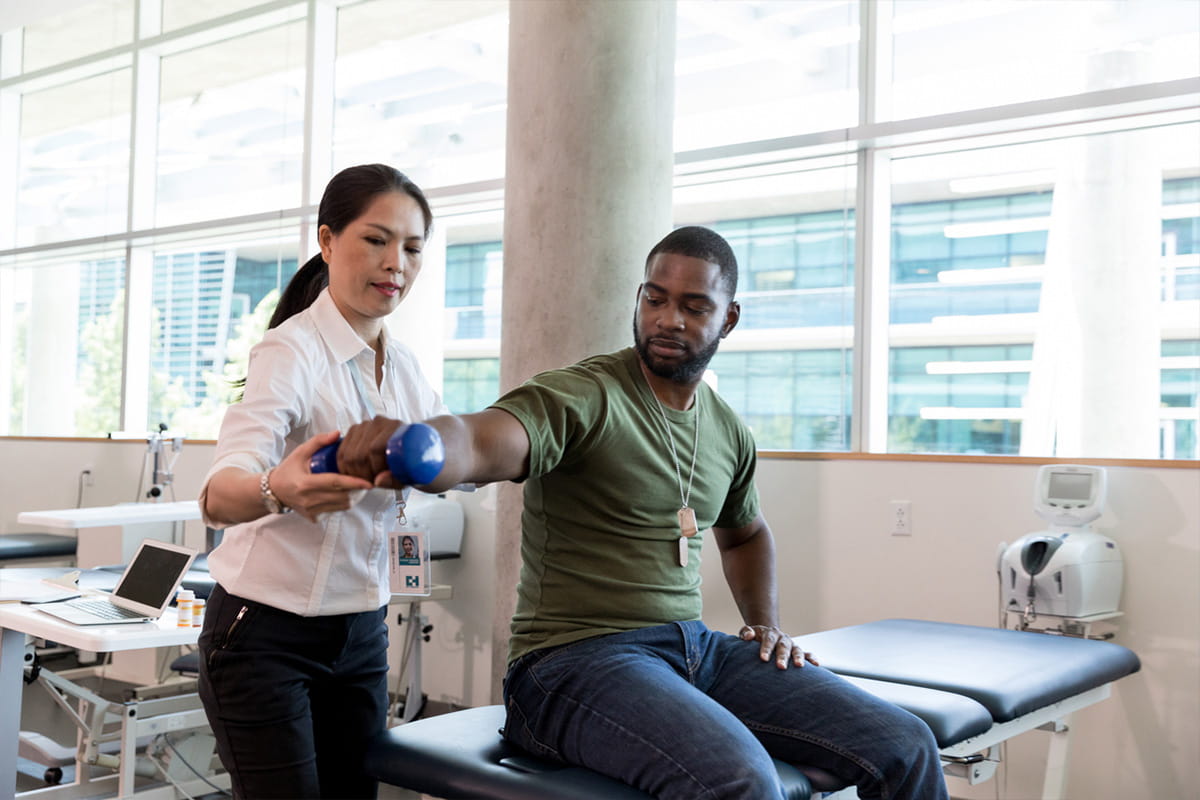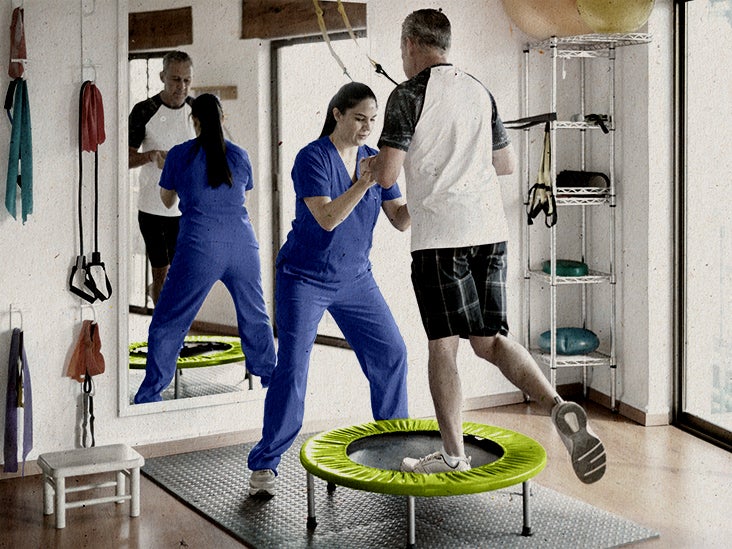Orthopedics Roanoke Proficiency: Navigating the Course to Optimal Wellness and Function
Orthopedics Roanoke Proficiency: Navigating the Course to Optimal Wellness and Function
Blog Article
Comprehending the Role of Physical Specialists in Sports Medication
Understanding the role of physical therapists in sports medication is crucial for athletes and healthcare experts alike. Physical therapists play an important role in assessing athletes' problems and injuries, creating tailored therapy strategies, and carrying out rehab techniques. Collaborating with medical care specialists and coaches, physical specialists supply extensive care to professional athletes, guaranteeing their overall well-being and optimal efficiency.
Examining Athlete's Injuries and Conditions
1. Physical specialists in sporting activities medicine play an essential role in evaluating professional athletes' conditions and injuries. The capacity to precisely assess a professional athlete's injury is crucial in identifying the appropriate training course of treatment and recovery. With an extensive analysis process, physiotherapists have the ability to identify the details nature and degree of an injury, along with any type of underlying elements that may have added to its incident.
During the examination, physical therapists gather crucial information such as the professional athlete's case history, previous injuries, and current symptoms. They additionally do a comprehensive checkup, evaluating factors such as series of activity, security, versatility, and toughness. Unique diagnostic tests and imaging may likewise be used to further examine the injury or problem.
By performing this thorough examination, physical specialists have the ability to precisely identify the injury and create a customized therapy plan. This may consist of healing workouts, hands-on treatment methods, and techniques such as warmth or chilly therapy. Additionally, physical therapists give education and support on appropriate techniques for stopping future injuries, along with methods for maximizing performance and lessening the danger of re-injury.
Creating Tailored Therapy Strategies
Physiotherapists in sporting activities medicine establish individualized treatment strategies based on their comprehensive analysis of an athlete's injuries and conditions. This procedure involves a complete understanding of the professional athlete's medical background, health examination, and diagnostic examinations. By collecting this details, the physical therapist can determine the underlying sources of the injury or problem and figure out one of the most suitable course of treatment.
The customized treatment plan aims to address the particular needs of the professional athlete and promote optimal recuperation. It may include a combination of therapeutic exercises, manual therapy methods, modalities such as warm or cool treatment, and education and learning on injury avoidance. When developing the therapy plan., the physical therapist will certainly additionally take into consideration the professional athlete's objectives, sport-specific demands, and timeline for return to play.

Applying Rehab Techniques
The implementation of recovery methods plays an essential role in the treatment process for professional athletes in sporting activities medicine. These strategies are created to aid professional athletes recoup from injuries, improve their performance, and stop further injury. Physiotherapists, as professionals in movement and feature, are accountable for applying these techniques and leading professional athletes with their rehabilitation journey.
Among the vital elements of implementing rehab methods is the assessment of the athlete's condition. physical therapists Roanoke. Physiotherapists assess the athlete's injury or condition, considering aspects such as the seriousness of the injury, the professional athlete's goals, and their present degree of fitness. Based on this assessment, the specialist develops an individualized therapy plan that includes particular rehabilitation techniques
Recovery techniques can consist of a variety of interventions such as healing exercises, manual treatment, methods (e.g., warmth, chilly, electrical excitement), and useful training. These techniques are customized to deal with the athlete's certain requirements and objectives, aiming to restore ideal feature, minimize pain, and boost efficiency.
Throughout the rehabilitation process, physiotherapists closely keep an eye on the athlete's progress and make any necessary adjustments to the therapy strategy. try this They likewise provide education and advice to the athlete on correct type, injury prevention strategies, and self-care techniques.
Enhancing Performance and Avoiding Injuries
A crucial facet of the physical specialist's function in sports medicine is boosting performance and preventing injuries through targeted treatments. Physical specialists play a crucial duty in optimizing athletes' performance and reducing the threat of injuries by utilizing numerous strategies and strategies.
To enhance efficiency, physiotherapists function closely with professional athletes to develop personalized exercise programs that concentrate on enhancing strength, endurance, flexibility, and equilibrium. These programs are developed to deal with certain locations of weak point or restriction, allowing athletes to reach their full potential (Roanoke physical therapy). Furthermore, physiotherapists might employ methods such as hand-operated treatment, consisting of joint mobilization and soft tissue mobilization, to enhance professional athletes' movement patterns and improve overall efficiency
In regards to injury avoidance, physiotherapists utilize their knowledge of biomechanics and movement evaluation to recognize potential risk aspects that might predispose professional athletes to injuries. They after that design targeted interventions, such as corrective exercises and proprioceptive training, to resolve these threat variables and reduce the likelihood of injuries. In addition, physical specialists inform professional athletes on proper workout and cool-down strategies, proper footwear, and injury avoidance techniques, encouraging them to take an active duty in preventing injuries.

Collaborating With Healthcare Professionals and Coaches
Cooperation with healthcare professionals and coaches is essential for physical therapists in maximizing professional athlete performance and protecting against injuries in the area of sports medicine. Physical specialists play an important role in the multidisciplinary group that supports athletes, and reliable partnership with other experts is important for delivering comprehensive treatment.
When collaborating with medical care he has a good point experts, physiotherapists team up carefully with medical professionals, orthopedic doctors, and sporting activities medication professionals. This partnership enables much better treatment, medical diagnosis, and evaluation planning for athletes. By sharing their competence and understanding, physiotherapists can add valuable insights and viewpoints to the team, guaranteeing the ideal possible outcomes for athletes.
In addition, collaboration with trains is vital for physical therapists to create and execute reliable training and conditioning programs. Trains provide important information concerning the specific demands and objectives of the sport, as well as the professional athlete's training timetable and performance assumptions. By collaborating, physical specialists and trainers can develop tailored programs that resolve the professional athlete's individual needs and improve their efficiency while lessening the risk of injury.
In addition, cooperation with medical care specialists and trainers prolongs beyond the treatment and training phase. Physical specialists typically work very closely with these specialists in creating injury prevention techniques and protocols. By sharing their knowledge and knowledge, they can contribute to the development of evidence-based practices that intend to minimize the occurrence of injuries and take full advantage of professional athlete performance.
Conclusion
Finally, physical therapists play a crucial role in sporting activities medication by assessing athletes' conditions and injuries, establishing tailored therapy strategies, carrying out recovery strategies, enhancing performance, and avoiding injuries. They additionally collaborate with medical care professionals and instructors to make sure comprehensive care for professional athletes. Their proficiency and knowledge contribute substantially to the total health and health of professional athletes in the area of sporting activities medication.
Physical specialists play a crucial role in assessing view website professional athletes' problems and injuries, establishing individualized therapy plans, and executing rehabilitation strategies. Physical specialists review the professional athlete's injury or problem, taking into account factors such as the intensity of the injury, the athlete's objectives, and their existing degree of physical health and fitness - physical therapists Roanoke.In terms of injury avoidance, physical specialists utilize their expertise of biomechanics and activity analysis to determine prospective threat factors that might predispose professional athletes to injuries. Physical specialists educate professional athletes on correct workout and cool-down techniques, proper shoes, and injury prevention strategies, empowering them to take an active function in stopping injuries
In verdict, physical specialists play a vital function in sporting activities medicine by assessing professional athletes' problems and injuries, creating tailored treatment plans, implementing rehab strategies, improving efficiency, and avoiding injuries.
Report this page